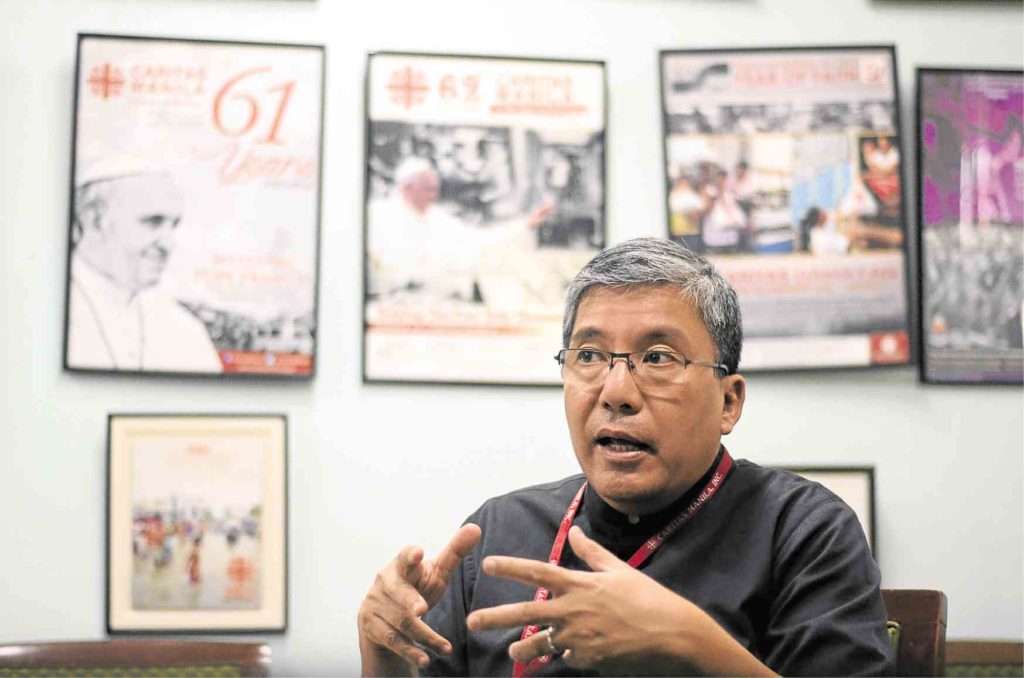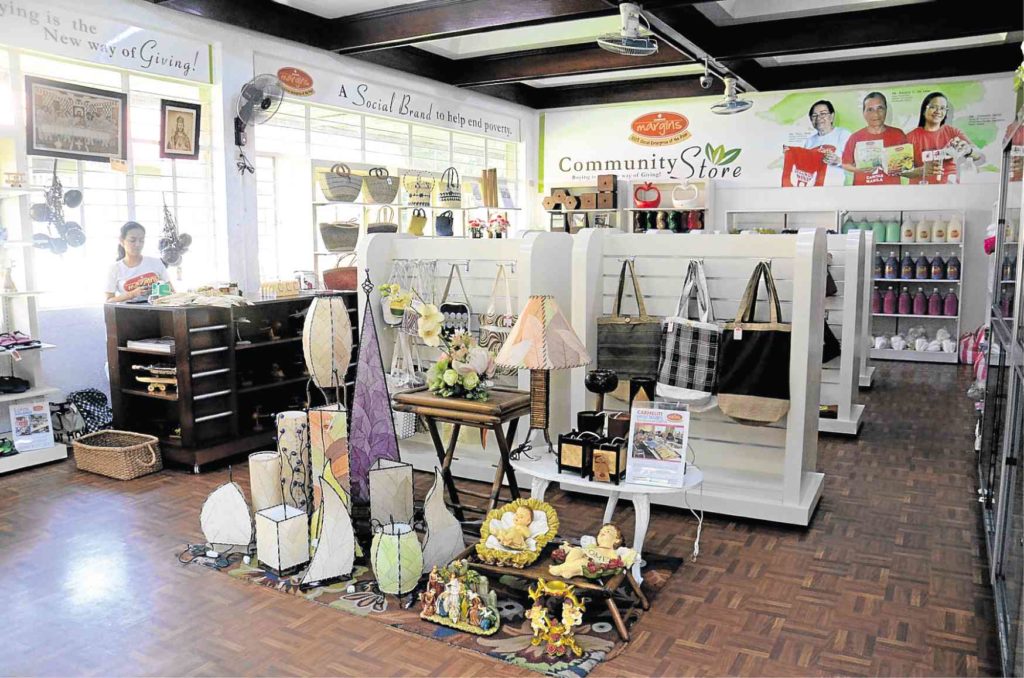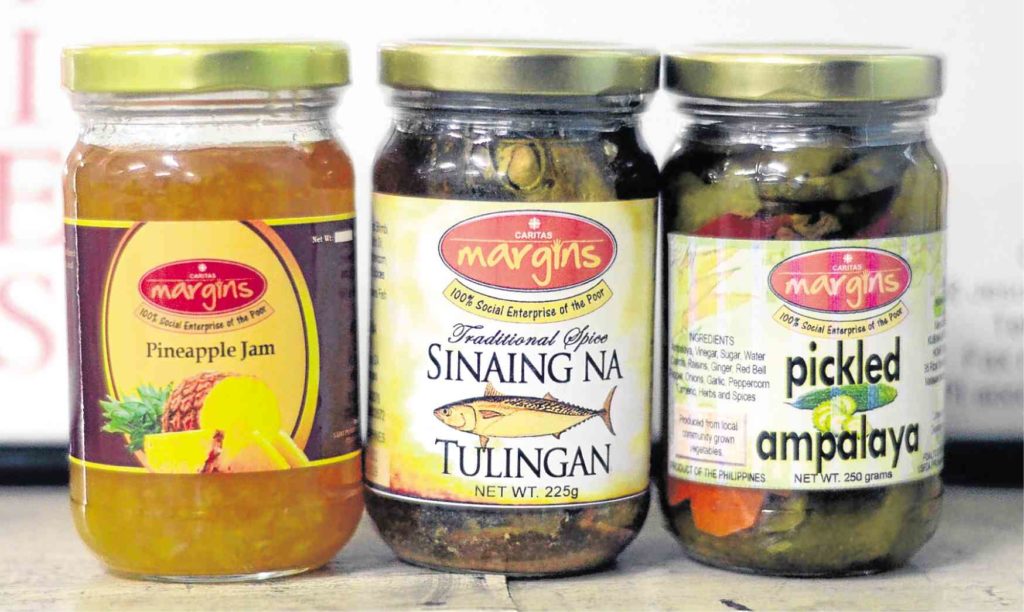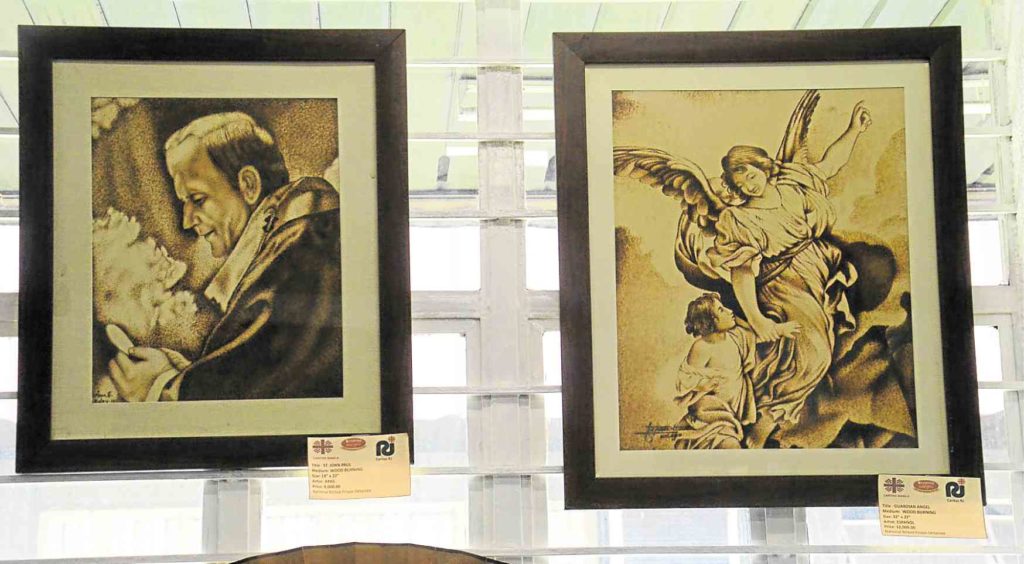Goods, profit, charity
When running a nonstock, nonprofit organization, approach it as you would a social enterprise—and you may just have the kind of success and longevity achieved by Caritas Manila, Inc., the social services arm of the Archdiocese of Manila.
The organization gets its entrepreneurial streak from Fr. Anton Pascual, executive director, who has been leading it since 2005. When Pascual first joined, Caritas Manila had a budget of only around P25 million; this year, that amount has grown to P278 million.
While 80 percent of this still comes from donations and grants, 20 percent is generated through “earned income,” says Pascual, through unique social enterprises he has put in place over the years.
“I like to strategize,” says Pascual, who completed his Master in Development Management degree at the Asian Institute of Management (AIM). “I don’t do what the rest are doing; you have to be different, because you have limited funds.”
Such entrepreneurial endeavors instituted by Pascual include Segunda Mana, the organization’s donations-in-kind program. The group basically accepts anything that can still be reused—clothes, toys, books, household items, electronic goods, school items—and sorts them into two groups: Class A and Class B.
Article continues after this advertisementClass A products are usually corporate donations, says Pascual, such as factory overruns, old stock, and unsold items, as well as a few individual donations. Unused and still of good quality, these items are then resold in Caritas Manila’s 25 Segunda Mana Charity Outlets located in various malls in Metro Manila and the greater Manila area.
Article continues after this advertisementClass B, on the other hand, is comprised of lesser quality items but still deemed fit to be sold. Caritas Manila places these items in huge sacks worth P80 each, which are sold to “Segundamanians,” or the 300 members of the Segunda Mana Club, who resell the items as “ukay-ukay.”
“[Segunda Mana is] one of a kind; we’re the only one doing this here in the Philippines,” says Pascual. “It’s a donations-based social enterprise.”
Last year, Caritas Manila received P72 million worth of in-kind donations, which generated P42 million in gross revenue. While the business helps microentrepreneurs earn a decent living, it also funds Caritas Manila’s core program: its educational scholarship called Youth Servant Leadership and Education Program (YSLEP).
YSLEP is Pascual’s tweaked version of Caritas Manila’s original Education Assistance Program (EAP). Instead of just helping underprivileged youth—who are either aiming to complete their undergraduate degree or a technical-vocational course—finish their studies, Pascual also designed YSLEP as a nationwide leadership formation program to ensure that the graduates would become servant leaders and give back to their communities.
“We want to make a big difference in education because once you give them a good education, you get them out of poverty,” says Pascual. “We also develop the spirit of service. I got [the idea] when I was parish priest in Bicutan in 1988-1992. Those whom we supported in their studies, we saw that they remained active in the church. The focus is to develop the future leaders of the country. It’s okay even if they go abroad, as long as they get out of poverty and then give back. They have to help their family, be active in the community, and then they pay forward.”
YSLEP alumni pay the kindness forward through their alumni group called Caritas Manila Alumni Scholars Association (Camasa), which is an integral part of the program, says Pascual. Aside from monitoring their activities post-YSLEP, Camasa also serves as the alumni’s way to become donors themselves and help existing Caritas scholars achieve their dreams.
Another entrepreneurial Caritas Manila program established by Pascual is Margins, which is labeled a “100-percent social enterprise of the poor.” Sold both online (Facebook, Twitter, Instagram, Lazada) and in brick-and-mortar establishments (including hotels and pasalubong centers), Margins products come from microentrepreneurs, nongovernment organizations, and urban and rural poor communities.
Pascual thought of bringing all these products together under one brand to help elevate their quality, the packaging and presentation—and also to ease marketing.
“I got the idea from Kirkland [Signature] in the US, says Pascual. “They have so many products, but not one major line—the important thing is they sell items that are of good quality and value for money.” Margins generated, in 2016, a total of P18.3 million in gross revenue; this year, the target is P30 million, he adds.
While the organization is based in the Archdiocese of Manila, Pascual says Caritas Manila was envisioned to become an institution with nationwide reach, catering especially to areas considered to be the poorest of the poor. Establishing Institutional Caritas Partners, or ICPs, are the organization’s way of doing so, little by little.
“Think of it as our ‘franchises.’ We assist them with the programs, they provide the manpower,” Pascual says.
Such entrepreneurial efforts, he adds, adhere to the organization’s main mission: To help the poor help themselves.
“[We] use the efficiency of business to resolve a social problem,” says Pascual.



